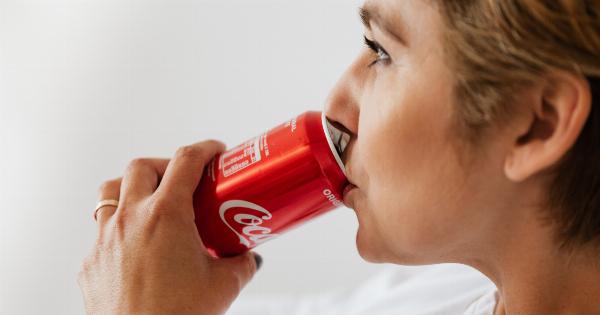As a parent, it is natural to want the best for your child, especially when it comes to their nutrition. One common question that often comes up is whether it is safe for infants to drink juice.
While juice can be a convenient way to provide hydration and essential nutrients to your little one, it is important to consider some important factors before introducing it into their diet.
The Potential Benefits of Juice for Infants
There are several potential benefits of juice consumption for infants. Firstly, juice can provide hydration, especially during hot summer months or when your child is unwell.
It can also serve as a source of essential vitamins and minerals, which can contribute to their overall growth and development.
Additionally, drinking juice can sometimes help alleviate common childhood issues, such as constipation. Certain types of juice, such as prune or apple juice, are known for their mild laxative effects, which can help regulate bowel movements in infants.
However, it is crucial to remember that this should only be done under the guidance of a healthcare professional.
The Risks of Early Juice Consumption
While juice can have some benefits, there are also risks associated with early and excessive consumption in infants.
One major concern is the high sugar content found in many commercial juices. Excess sugar intake can lead to tooth decay, as well as an increased risk of obesity and related health issues later in life.
Infants have delicate developing teeth, and frequent exposure to sugary drinks can cause significant damage.
Moreover, the consumption of juice can lead to a reduced appetite for other essential foods. Infants who fill up on juice may not receive adequate nutrition from breast milk or formula, which is crucial for their growth and development.
Another risk of early juice consumption is the potential for allergies and digestive issues. Some infants may be more prone to allergic reactions from certain types of juice, such as citrus fruits.
Additionally, the high sugar content in juice can cause digestive problems, including diarrhea or gas, especially when introduced too early or in large quantities.
When Can Infants Start Drinking Juice?
The American Academy of Pediatrics (AAP) recommends that infants should not consume juice before the age of one. The AAP suggests that breast milk or formula remains the primary source of nutrition for infants until this age.
Once your child has reached the age of one, you can begin to introduce small amounts of 100% fruit juice, carefully considering the type of juice and its nutritional value.
It is important to dilute the juice with water, using a ratio of 1 part juice to 10 parts water, and to offer it to your child in a cup rather than a bottle. This encourages the development of healthy drinking habits and reduces the risk of tooth decay.
It is crucial to note that juice is not a necessary part of a child’s diet. The nutrients found in juice can easily be obtained from whole fruits, which offer additional benefits such as fiber.
Whole fruits also encourage the development of chewing skills and promote a balanced diet.
Choosing the Right Juice
When considering giving juice to your infant, it is essential to choose the right type of juice. Here are a few factors to consider:.
Type of Juice:
Opt for 100% fruit juice without any added sugars or sweeteners. Ensure that the juice is pasteurized to reduce the risk of bacterial contamination.
Avoid juices that are high in acidity, such as citrus juices, as they may cause digestive issues or allergic reactions in some infants.
Nutritional Content:
Look for juices that are rich in essential vitamins and minerals, such as vitamin C and potassium. These nutrients can contribute to your child’s overall growth and development.
Serving Size:
Limit juice consumption to no more than 4 ounces per day for children aged 1-3 years, and no more than 6 ounces per day for children aged 4-6 years.
This ensures your child receives the necessary nutrients from other food sources and avoids excessive sugar intake.
The Importance of Water and Milk
While small amounts of juice can be introduced into your child’s diet after the age of one, it is crucial to remember that water and milk should remain the primary sources of hydration for infants.
Water is essential for maintaining proper hydration levels, especially during hot weather or if your child is experiencing diarrhea or vomiting. Offer water to your child throughout the day and encourage them to drink whenever they are thirsty.
Milk, whether breast milk or formula, is the main source of nutrition for infants until the age of one. It provides essential nutrients, including proteins and fats, which are crucial for their growth.
Once your child reaches one year of age, you can gradually transition from breast milk or formula to whole milk.
Conclusion
Introducing juice into an infant’s diet requires careful consideration. While it can offer some benefits, such as hydration and essential nutrients, it is important to be cautious about the type and amount of juice offered.
Remember that water and milk should remain the primary sources of hydration and nutrition for infants.




























